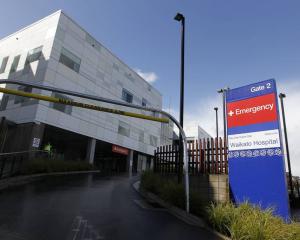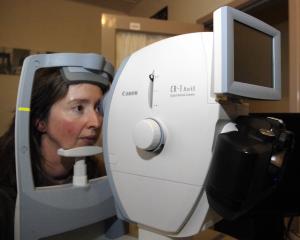Health Minister Tony Ryall has put district health boards (DHBs) on notice over waiting times for cancer treatment, despite his ministry being reasonably happy with its performance figures.
Mr Ryall said he would hold them accountable if times don't improve as the Health Ministry today released the second set of quarterly figures, for October to December, on how well DHBs are meeting key targets.
Eighteen of the 21 health boards were able to provide radiation treatment within six weeks of a patient's first specialist assessment in the previous quarter but just 12 could do so in the latest figures. At the end of the year the target will be four weeks.
Mr Ryall said DHBs need to do a lot better, particularly in Auckland, which fell short by 4 percent, Radio New Zealand reported.
"If we can't see improvements then I think at the local body elections this year people in Auckland and elsewhere will tell those health boards actually what they think of their performance."
Auckland DHB chief executive Garry Smith said the board was working hard towards its targets but reaching a four week target by December would be a challenge and was subject to equipment and staff programmes being up to date.
Mr Ryall said some of the boards had told him the slowdown was due to increased patient numbers, but he said they should still be able to cope, despite the Health Ministry itself saying that overall it was reasonably happy with the performance targets.
"We're pleased that five of the six national health targets have improved from quarter one to quarter two," clinical advisor to the ministry, Sandy Dawson, told NZPA.
The ministry and DHBs were working on addressing cancer treatment and radiotherapy waiting times.
"So, on the balance, this is good news."
Dr Dawson said many of the DHBs had achieved the 100 percent mark for cancer treatment but some had struggled in the second quarter.
"The numbers of people it affects are, in relative terms, not huge, 35 patients in quarter one, 50 patients in quarter two, but everybody would like to see more rapid treatment for people with cancer and that's what we're committed to delivering," he said.
Dr Dawson said the results were dynamic, and that some DHBs would improve a bit while others would slip back, usually with rational and identifiable reasons.
"If you drill down too far you'll always find some people who do extraordinarily well and others who do not so well, but overall these are progressing much as we would hope and expect."
Other poor performances included Waitemata DHB notching up 68 percent for shorter stays in the emergency department, well short of the 95 percent ministry target.
Waitemata DHB also came in last for shorter waits for cancer treatment radiotherapy, with 89 percent compared to the 100 percent target.
Hawke's Bay DHB had an 85 percent performance in improved access to elective surgery, compared to the 100 percent target, while Bay of Plenty's Lakes DHB fell short of the 85 percent immunisation target, reporting 73 percent.
Dr Dawson said the ministry would be working hard to bring the DHBs up to scratch.
"What we look for in these targets is progressive and sustainable improvement at a national level and it's pleasing to see the improvements."











